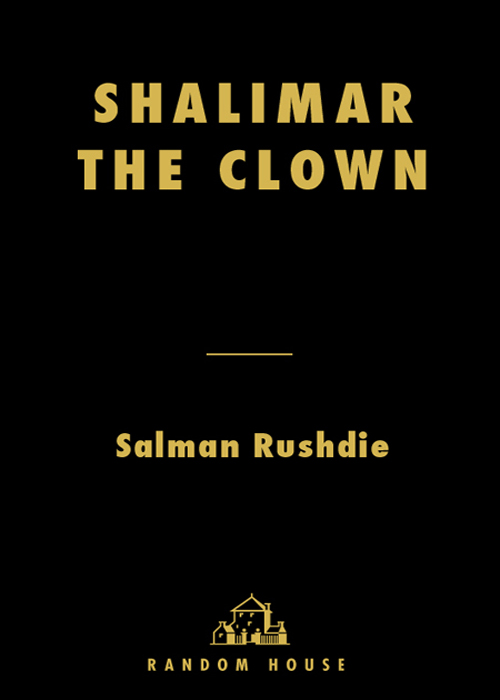
Shalimar the Clown
A Novel
کتاب های مرتبط
- اطلاعات
- نقد و بررسی
- دیدگاه کاربران
نقد و بررسی

Starred review from July 25, 2005
Reviewed by William T. Vollmann
The focus of this novel is extremism. It tells the tale of two Kashmiri villages whose inhabitants gradually get caught up in communal violence. As we know from Yugoslavia, hatred takes on especially horrific manifestations when neighbors turn against each other. The neighbors to whom Rushdie introduces us are memorable and emblematic characters, especially his protagonists, the Hindu dancer Boonyi Kaul and her childhood sweetheart, Shalimar the clown, son of a Muslim family. Their passion becomes a marriage solemnized by both Hindu and Muslim rites, but as conflict heats up, Boonyi seduces the American ambassador. The resulting transformation of Shalimar into a terrorist is easily the most impressive achievement of the book, and here one must congratulate Rushdie for having made artistic capital out of his own suffering, for the years he spent under police protection, hunted by zealots, have been poured into the novel in ways which ring hideously true. Bit by bit, Shalimar becomes a figure of supernatural menace.
The life of the ambassador, Max Ophuls, is also brilliantly invented. In a series of highly effective set pieces—Nazi-occupied Strasbourg, where he failed to persuade his principled parents to save the books they published, not to mention themselves, from the flames (the family was Jewish); southern France, where his exploits on behalf of the Resistance were so colorful that I would spoil the reader's pleasure if I betrayed them; England, where a glamorous wartime romance led him into his only marriage—the author builds our sympathy for the man who (with her connivance) ruins Boonyi's life and sets in motion Shalimar's destiny.
Now for the novel's defects: Rushdie's female characters are generally less plausible than the male ones. When he is describing Kashmir's good old days of communal tolerance, he too frequently takes refuge in slapstick. His depiction of Los Angeles relies so much on references to popular culture that the place becomes a superficial parody of itself. In terms of technique, Rushdie's most irritating tic is the sermonistic parallelism or repetition, but the novel's best passages (not to mention his other great work, Shame
) prove him capable of great style.
Never mind these flaws. Shalimar the Clown
is a powerful parable about the willing and unwilling subversion of multiculturalism. And for those readers who even in this post-September-eleventh continue to cling to American narcissism, the parable grows more urgently pointed: Ophuls and Boonyi conceive a daughter, who is taken away at birth and in due time becomes a beautiful, troubled, privileged ignoramus in Los Angeles. About Shalimar the clown, her mother's husband, she doesn't have a clue. Is that her fault? Is it our fault that we never paid much attention to the rest of the world? But one day, without any warning, two planes smashed into the Twin Towers, and now (wake up and run!) Shalimar the clown has arrived in Los Angeles. (On sale Sept. 6)
Vollmann's most recent novel is
Europe Central (Viking).

June 1, 2005
Before the eyes of his grown daughter, a former (and famous) American ambassador to India is stabbed to death by his enigmatic chauffeur, the Shalimar of the novel's title. What contemporary novelist knows more than Rushdie about the political-religious tensions besetting the globe since the middle of the twentieth century and, specifically, how such tensions not only affect personal lives but also, in many instances, " create" the lives many people lead? The historically shaped lives of Maximilian Ophus, born into a wealthy Jewish family in Strasbourg, France, and later a Resistance hero and vastly popular diplomat, and Shalimar the Clown, who grew up in the devastatingly beautiful (but Hindu-Muslim disputed) Kashmir region of India, intersect, and why one is compelled to take the other's life seems to be the perfect material for Rushdie's cosmopolitan, sociopolitical consciousness. To characterize the novel as "rich" seems inadequately broad as a general description of a Rushdie book, including this one. Let it stand, however, as a cogent descriptor of Rushdie's sheer and magnificent talent. His beautifully metaphoric language and sly sense of humor keep his complex plot, with its layers of personal and cosmic meaning, tightly woven.(Reprinted with permission of Booklist, copyright 2005, American Library Association.)

























دیدگاه کاربران